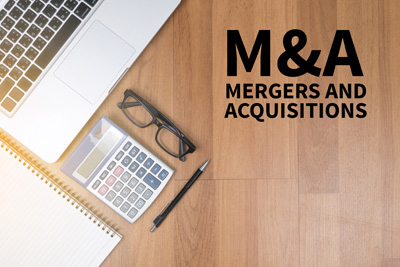Don’t let the slower start to the year fool you into thinking dealership buy-sell will grow soft.
The number of dealerships acquired in the first quarter---approximately 82---fell 31% year-over-year, according to the latest Haig Report from Haig Partners, but the firm is anticipating an increase in buy-sell activity the rest of the year.
And the public dealer groups are buying non-U.S. dealerships and non-dealer companies at a record clip.
“Dealers have plenty of cash and are still making strong profits. Many groups are looking to reinvest their profits by acquiring additional dealerships, as they believe larger groups will have advantages over smaller ones in the future,” Haig Partners said in a news release.
For many groups, growth through acquisition can ultimately lead to stronger margins through broader vehicle mixes, additional customers and stronger economies of scale, Haig said.
As the firm puts it, the question then becomes, “Should I get bigger, or should I get out?”
And for selling dealers, many are finding high valuations are putting them in a position where selling is the best option.
Haig estimates a “typical dealership” is worth roughly $40 million, including assets like real estate. The firm said midsize dealer groups can be worth hundreds of millions, with large groups valued at a billion-plus.
“At these values, an increasing number of dealers and their families are having serious conversations about the risks and capital investments required to remain competitive,” Haig said.
“Many are making the decision to take their chips off the table via a sale to start enjoying the fruits of their labor sooner,” the firm said.
So who are the buyers? At least in Q1, stores were predominantly sold in private acquisitions. The Haig Report, citing its own research, Automotive News, SEC filings and The Banks Report, said 80 of the 82 U.S. dealerships bought or sold in Q1 were private acquisitions.
Public acquisitions fell from eight in Q1 2022 to two in Q1 2023, according to the report.
Acquisition spending by the public groups actually increased year-over-year, though, rising from $696 million to $730 million, Haig said.
But they’re spending that money in other ways.
The firm said 88% of that sum in Q1 2023 was on purchases of non-U.S. dealerships or non-dealership acquisitions, noting Lithia’s dealership purchases in Canada and the U.K., Sonic Automotive’s powersports purchase and AutoNation’s acquisition of RepairSmith as examples.
“This flurry of foreign and non-auto dealership acquisitions totaled $642M in Q1 2023,” Haig said in the report. “Even if no more spending is made on similar acquisitions in 2023, this will be the highest total of foreign and non-dealership spending since we started our spending tracker in 2013.”
Offering some overall context to the quarter’s buy-sell activity, Haig Partners President Alan Haig said: “Although dealership buy-sell activity slowed in Q1, we are receiving many inbound requests from dealers looking to grow. Their balance sheets are loaded with cash and hold very little debt. They have confidence that the long-term outlook for automotive retail is positive.
“This confidence is showing up in record-high values being paid for stores. Last year, we had the honor of serving as the exclusive advisor on the sale of John Elway’s Crown Toyota in California, which attracted the second-highest value ever paid for a Toyota dealership, to our knowledge,” Haig said. “Earlier this year, we were proud to represent Jack and Robin Salzman in the sale of their CDJR stores, one of which sold for a record-high price for that franchise, according to Stellantis. We expect to set another record for a store that is on track to close soon for the highest price ever paid for a single dealership.”














